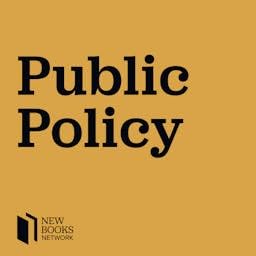What is the role of the state in supporting transitions and deeper transformations towards a more sustainable world? Brought to you by the BISA Environment and Climate Politics Working Group. The role of the state in supporting shifts towards a more sustainable society is receiving increasing academic and policy attention from interest in green (new) deals to planet politics through to more critical attention to the ecocidal and extractivist nature of states. Despite this, the focus often starts and (frequently) ends with the governance of transitions, where the state is merely one actor among many and the tensions and contradictions between the range of roles it simultaneously performs are often left under-analysed. The state is often caricatured variously in political debate as too big, too powerful, too small, too inefficient, too ineffective or too unsustainable. But the reality is more complex, nuanced and contingent on the historical and geographical context, prevailing social relations and the state function and issue in question. States of Transition: From Governing the Environment to Transforming Society (Cambridge UP, 2025) takes a deep dive into the multiple roles states are playing in supporting transitions to a more sustainable world, exploring where there is scope for their transformation. Going beyond unhelpful binaries which cast the state as the central problem or the all-encompassing solution to ecological and social crises, it explores diverse current state practice across key domains from the military and democratic state to the welfare, entrepreneurial industrial and global state. To do this, it builds on theoretical resources from a range of disciplines, as befits the challenge of making sense of these diverse aspects of state power. It moves beyond existing analysis of the ‘environmental state’ and normative projections around the form a ‘green state’ might take, in order to explore scope for a ‘transition state’ to emerge, capable of corralling and transforming all aspects of state power behind the goal of responding to the existential threat of planetary collapse. Peter Newell is a Professor of International Relations at the University of Sussex. He is a specialist in the politics and political economy of environment and development. For more than 25 years he has conducted research, consultancy and advisory work on issues of climate change and energy, agricultural biotechnology, corporate accountability and trade policy working in a number of countries including Argentina, Brazil, Chile, China, Costa Rica, Ethiopia, India, Kenya, Mexico and South Africa. In recent years his research has mainly focussed on the political economy of carbon markets and low carbon energy transitions. Pauline Heinrichs is a Lecturer in War Studies (Climate and Energy) at King’s College London. Her research focuses on international climate diplomacy and the contestation of security in the context of climate change and international ordering. She currently holds a British Academy Knowledge Frontiers Grant working on critical actuarial science and climate justice. Pauline has worked with and led international teams in conflict and post-conflict countries such as Ukraine and the Baltic States, leading on qualitative methods and strategic narrative analysis. She has been selected as an Emerging Scholar by the Milton Wolf Seminar on Public Diplomacy. Pauline has also been a climate diplomacy professional working in foreign policy, and an international climate think tank. Learn more about your ad choices. Visit megaphone.fm/adchoices Support our show by becoming a premium member! https://newbooksnetwork.supportingcast.fm/public-policy
Voir plus
Voir moins

 Dec 17 202526 min
Dec 17 202526 min 28 min
28 min 44 min
44 min 58 min
58 min 1 h et 10 min
1 h et 10 min 43 min
43 min 43 min
43 min
